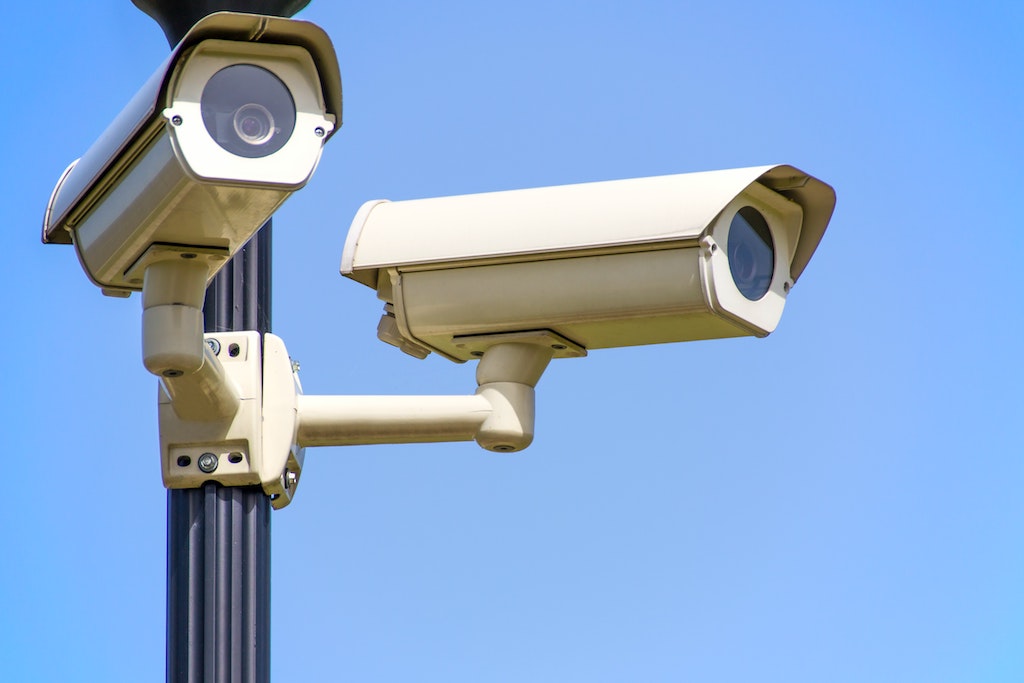Home security systems provide an essential line of defense against potential threats, and, as a homeowner, one of the most significant decisions you will have to make is the choice between a monitored and unmonitored home security system. This decision depends heavily on various factors such as your budget, location, and unique security needs. This article explores the key differences between these two systems, their benefits and features, and the crucial factors to consider before deciding.
Monitored home security systems
Monitored home security systems are comprehensive security solutions that operate round the clock, offering homeowners an invaluable sense of safety. They are meticulously designed to detect potential threats and respond promptly to keep your property secure.
How do monitored home security systems work?
The functionality of a monitored home security system lies in its integration of various components and the efficiency of its 24/7 professional monitoring.
Here’s how it works:
- The system is equipped with different types of sensors, such as door sensors, window sensors, and motion detectors, strategically placed around your property.
- When any of these sensors are triggered, perhaps due to a break-in or unexpected movement, the alarm system is activated.
- This alarm signal is immediately transmitted to a professional monitoring center where trained personnel are on standby.
These professionals then evaluate the alarm and the threat. Based on the analysis, they can take the appropriate action, such as calling the homeowner for verification or immediately alerting the necessary emergency services like the police, fire department, or medical services.
Benefits and features of monitored home security systems
Monitored home security systems come with numerous benefits and features:
- Immediate response: Since the system is professionally monitored 24/7, any alarm or alert receives immediate attention, facilitating a swift response to potential emergencies.
- Professional installation and maintenance: Monitored home security providers usually offer professional installation, ensuring the system is correctly set up for optimal performance. Many also offer regular maintenance and technical support.
- Constant surveillance: With monitored home security systems, your property is under constant surveillance, adding an extra layer of protection and providing peace of mind to homeowners.
- Insurance benefits: Many insurance companies discount homeowners insurance premiums if a monitored security system is installed. This discount is due to these systems’ additional level of security.
Choosing a monitored home security system is a significant decision that can greatly enhance your home’s security. However, consider the cost, your security needs, and the security company’s reputation before making this decision.
Unmonitored home security systems
Unmonitored home security systems, often known as self-monitored or standalone systems, put the control of home security directly in the homeowner’s hands. Unlike monitored systems, these are not connected to a professional monitoring center but rely on the homeowner or designated contacts for the response.
How do unmonitored home security systems work?
Unmonitored home security systems use the same basic principles as monitored systems, but with a key difference in how alerts are handled:
- Similar to monitored systems, unmonitored systems use a variety of sensors placed throughout your home, such as door and window sensors, and motion detectors.
- If a sensor is triggered, the system sends an alert directly to the homeowner instead of alerting a professional monitoring center. This alert is typically delivered via a smartphone app or other designated devices.
The homeowner then needs to assess the situation and, if required, contact the relevant emergency services.
Benefits and features of unmonitored home security systems
Unmonitored home security systems come with a range of benefits and features:
- No Monthly Fees: One of the most significant advantages of an unmonitored system is the absence of monthly fees. After the initial equipment cost, there’s no ongoing expense.
- Customization: Many unmonitored systems offer a high degree of customization. Homeowners can choose the necessary equipment, adjust settings according to their preferences, and integrate with various smart home devices.
- Control: With an unmonitored system, homeowners have direct control over their security system. They decide how to respond to alerts and when to involve the authorities.
Effectiveness of unmonitored home security systems
While unmonitored systems offer several advantages, their effectiveness depends largely on the homeowner’s vigilance.
- Homeowner dependence: Without a professional monitoring center, the homeowner becomes the first line of defense. If a sensor is triggered, it’s up to the homeowner to evaluate the situation and decide the next course of action.
- Availability: The effectiveness of unmonitored systems relies on the homeowner’s ability to receive and respond to alerts, which might be challenging if the homeowner is often unavailable, does not have reliable mobile service, or is in a different time zone.
- Potential delays: Unlike monitored systems, where professionals can immediately contact emergency services, unmonitored systems might experience response delays. For instance, if the homeowner is unsure of the situation or unable to access their phone, there could be a significant delay in notifying the authorities.
Unmonitored home security systems can be an effective and economical choice for homeowners who prefer to handle home security. However, they require commitment and vigilance from the homeowner to ensure effective protection. As always, homeowners should weigh the pros and cons based on their personal circumstances and preferences before deciding on the best approach to home security.
Monitored vs. Unmonitored Home Security Systems
When securing your home, monitored and unmonitored home security systems offer unique advantages and potential downsides. The ideal choice depends largely on your specific needs, lifestyle, and budget.
Cost Implications
The cost is one of the most apparent distinctions when comparing monitored vs. unmonitored home security systems.
Monitored systems: Monitored home security systems generally involve a monthly fee for the professional monitoring service. This fee can vary significantly based on the service provider and the chosen package, typically from $15 to $50 or more. In addition, there may be upfront costs for the equipment and installation. However, these costs cover 24/7 professional monitoring, providing constant surveillance and immediate responses to potential threats.
Unmonitored systems: In contrast, unmonitored systems typically involve a one-time equipment purchase without recurring monitoring service fees. The cost of the equipment can vary, depending on the level of complexity and sophistication you choose. The absence of a monthly fee can make unmonitored systems more budget-friendly in the long run, but the responsibility for surveillance and response lies with the homeowner.
Response Times
The efficiency of response times can also vary significantly between monitored and unmonitored systems:
Monitored systems: Monitored home security systems ensure a quick response to any alerts. Since a professional monitoring center receives the alerts, trained personnel can evaluate the situation immediately and contact emergency services if necessary. This prompt response can be crucial in emergency situations.
Unmonitored systems: On the other hand, unmonitored systems depend on the homeowner’s reaction time. When an alarm is triggered, a notification is sent to the homeowner, who must assess the situation and decide whether to contact emergency services. This process can lead to slower response times, especially if the homeowner is unavailable or unsure of the appropriate response.
Homeowner Involvement
The level of homeowner involvement is another key difference:
Monitored systems: Monitored systems require minimal homeowner involvement after installation. The monitoring service takes care of the surveillance and response, leaving homeowners free to go about their daily lives with the reassurance that their home is being professionally monitored.
Unmonitored systems: With unmonitored systems, the homeowner essentially becomes the monitoring center. This setup means the homeowner must always be ready to receive and respond to alerts, requiring a higher degree of vigilance and involvement.
Both monitored and unmonitored home security systems have their unique strengths and weaknesses. Homeowners must carefully consider these factors alongside their personal needs, preferences, and circumstances when deciding the most suitable system for their home.
How to Choose the Right Security System
Choosing between a monitored or unmonitored home security system will primarily depend on your budget, your security needs based on local crime rates, and potential limitations imposed by your property, building, or homeowners association.
Budget is a crucial factor. If you’re comfortable with monthly fees for professional monitoring, a monitored system could be a good fit. However, an unmonitored system may suit you better if you prefer a one-time investment and are comfortable taking a more hands-on approach.
Your local crime rates can also influence your choice. If you live in an area with high crime rates, a monitored system might provide more peace of mind with its rapid response capability.
Property and building restrictions may also play a part. Some homeowners associations or rental agreements may have rules regarding the installation of security systems. Always check these conditions before investing in a system.
Choosing between monitored and unmonitored home security systems can significantly impact your home’s security. Both options offer unique advantages and potential downsides. Monitored systems offer professional, around-the-clock surveillance but come with a recurring cost. Unmonitored systems give homeowners control and avoid monthly fees, but require vigilance and hands-on management.
When making a decision, consider your budget, local crime rates, and any restrictions you might face. Above all, ensure that your chosen system meets your unique security needs and provides the level of safety you desire for your home and loved ones.



